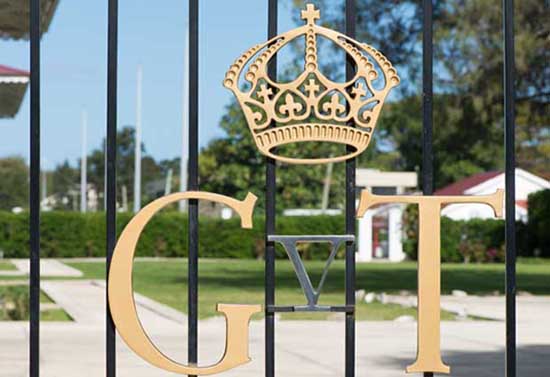
According to a damning independent constitutional report, the comprehensive Tongan reforms which were enacted in 2010 were not only incompatible to principles of democracy but were unworkable. After four years since then, the judicial reforms have proved to be flawed and autocratic.
OPINION: Since the current Constitution of Tonga was introduced in 2010 recommending democratic constitutional and electoral reform in the governance structure, the most damning review of what took place in relation to the judicial structure came out in a recent independent report funded by the Commonwealth Secretariat under the auspices of the Commonwealth Fund for Technical Cooperation.
What happened in Tonga in relation to reform may serve as a caution to other Pacific nations who are going through their own reform activities, particularly in relation to the judiciary.
Peter J. Pursglove, a legal consultant in constitutional law, was hired to carry out a survey upon which the review was based.
The focus of the review was on the constitutional provisions relating to the judicial structure of the Kingdom of Tonga.
"The present Constitution of Tonga can lay claim to being the most poorly structured and drafted Constitution of any Country in the Commonwealth," says the report.
And to rub salt in the wound, the report also declares:
"When one considers the justifiable pride felt by Tongans everywhere in the First Constitution handed down by King George Tupou I in 1875, this is truly a very sad state of affairs in the Kingdom that has one of the world’s oldest surviving written constitutions. The provisions in the Constitution relating to the Judiciary are particularly lacking in both structure and content to the extent that they are not only unworkable but are totally incompatible with the principles of constitutional monarchy and democracy upon which the new Constitution of 2010 was supposed to have been found."
Before the Constitutional reforms of 2010, "the Kingdom of Tonga had a well-functioning judiciary that was independent and operated in accordance with recognised Constitutional Law standards."
Grassroots movement
Since the mid-1980s a pro-democracy movement was birthed as a grass-roots political movement calling for changes to the governance structure of the Kingdom of Tonga.
A major part of the success of this movement was the victories scored by a number of reformers elected as people’s representatives in the Legislative Assembly over a 30-year period.
The focus of the movement was to make Tonga’s structure more democratic, with focus on the Legislative as well as the executive.
But it was not until 2006 that the monarch responded favourably to the call for democratic reforms, with practical steps being taken to realize these reforms.
In 2008, a Constitutional and Electoral Commission was established to review the governance structure and to make recommendations for constitutional and electoral reforms.
The late King George Tupou V, in collaboration with the appointed government of the day under the leadership of Prime Minister Dr Feleti Sevele, put together the necessary steps to bring about the structural reforms.
The terms of reference set out for the review and consequently the Constitutional and Electoral Commission Act was focused on two of the three branches of government – the legislative and the executive.
Final report
The third branch of government, the judiciary, was not included in the terms of reference of the Commission, and the judiciary did not feature in either the review or the final report.
The view then was that it did not need reform as it was functioning independently and efficiently.
As Pursglove reported, "Under the pre-2010 Constitution, the Kingdom of Tonga appears to have had a well-functioning judiciary that was independent and operated in accordance with recognised Constitutional Law standards. Prior to 2010 the Tongan judiciary fulfilled its constitutional role and could be compared favorably with the judiciaries of other Commonwealth Member States."
Despite the fact the judiciary was excluded from the terms of reference of the Constitutional and Electoral Commission, and the final report of the Commission contained no recommendation for reforming the judiciary, when the 2010 Constitution was drafted, sweeping changes were made to that part of the Constitution that relates to the judiciary.
The changes made were not only unnecessary but it created "an unique structure not found anywhere in the Commonwealth".
The government through the Legislative Assembly is trying to reverse "the flaws" created by the 2010 reforms, in relation to the judiciary.
It is still puzzling who ordered these changes to be made … and why they were considered to be necessary.
There were no discussions reported pertaining to the changes made to the judicial structure, and it is still puzzling who ordered these changes to be made, which lacked proper scrutiny, and why they were considered to be necessary.
Unworkable reform
According to the report, the comprehensive reform which were enacted in 2010 were not only incompatible to principles of democracy but were unworkable.
After four years since 2010, the judicial reform has proven to be flawed and unworkable and quite autocratic in structure.
Pursglove reported: "The government therefore feels that it is time for the Constitution to be revised so that these constitutional anomalies may be corrected and the justice sector brought back into line with the judicial systems operating elsewhere in the Commonwealth."
The Ministry of Justice, according to the report adequately carried out the functions of an independent judiciary, and was not only transparent and accountable to Parliament, thus to the people, but was also financially sustainable.
The new 2010 Constitution added the office of Lord Chancellor and the Office of the Attorney-General (AG), as well as the Judicial Appointments and Discipline Panel (JADP).
The offices of the Lord Chancellor and of the Attorney-General became separate administrative structures within the judicial sector. Tonga now has three separate bodies responsible for the judiciary, and proved to be unworkable, inefficient, ineffective, and unaffordable.
The report states that while the Office of Lord Chancellor was reformed in 2005 in the United Kingdom "to bring the administration of justice into line with modern systems of democratic governance", Tonga went the opposite direction "transferring the responsibility for the administration of justice from an elected and accountable Minister of Justice to a Lord Chancellor who is largely unaccountable".
Democratic principles
The report states that: "While the Ministry of Justice remains accountable to the people through Parliament, the Office of the Lord Chancellor and the Office of the Attorney-General are not publicly accountable and answer only to the King in Privy Council. This is contrary to the democratic principles upon which the new Constitution was founded."
Questions have been raised on the roles of the Privy Council and of the Law Lords under the Constitution.
The monarch appoints the Privy Council, and under the 2010 Constitution it has no law making powers, and the Law Lords should play no role in governance.
"Their participation as members of the JADP is in conflict with the principles of democratic governance upon which the 2010 Constitution is founded," says the report.
Other recommendations for reinstatement, that the office of Attorney-General be a "political appointment" and that as it was pre-2010, the Attorney-General also held the office of the Minister of Justice.
It is also recommended that the Judicial Services Commission should be reinstated to replace the JADP, whose membership is made up of Law Lords, being accountable only to the monarch.
As Tonga’s Legislature work to reverse legislations relating to the judiciary as in the 2010 Constitution, the question remains who was really responsible to order the sweeping changes to the judicial sector, and why were the changes carried out without public discussion or debated in the Legislature.
This article has been republished from the Pacific Institute of Public Policy in Vanuatu with the permission of the author.
This work is licensed under a Creative Commons Attribution-NonCommercial 3.0 New Zealand Licence.




